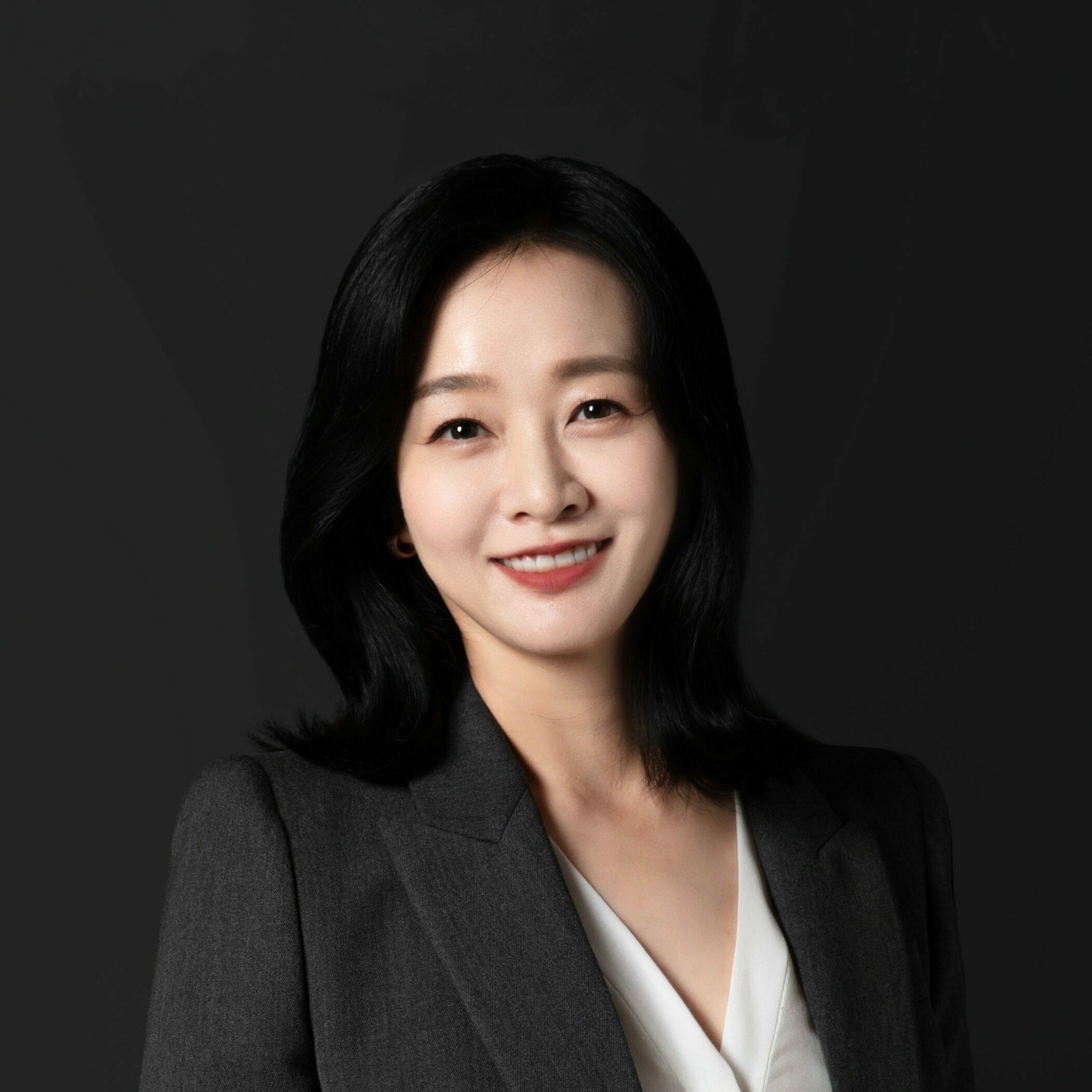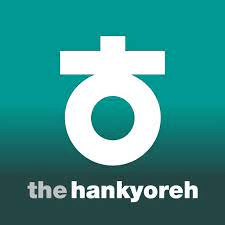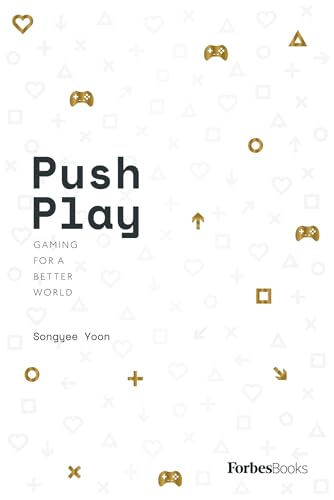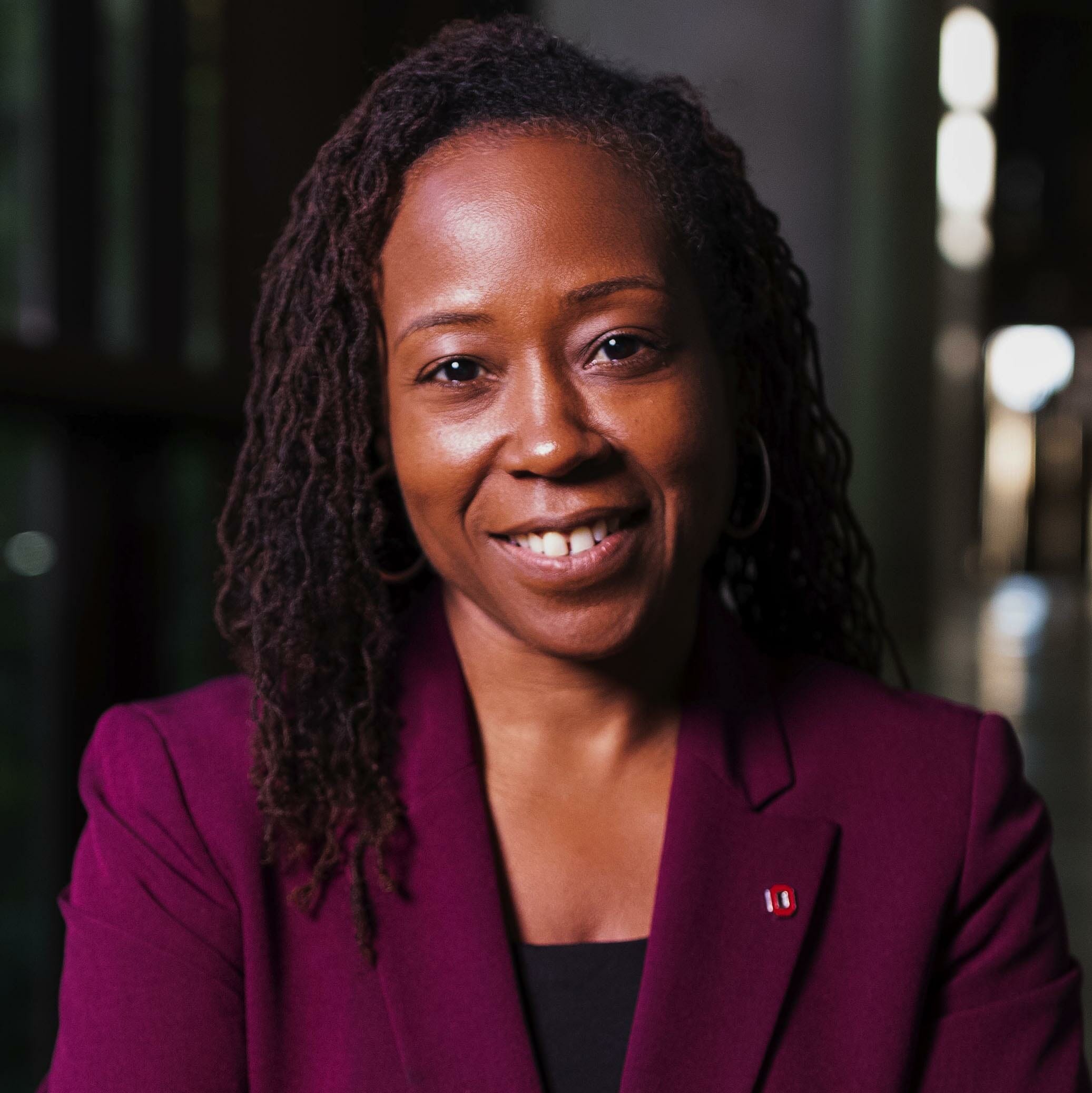Videos
Learn More About Songyee Yoon
Throughout human history, whenever a new material came about, humans would play with it to understand its limitations and characteristics before we understood its utility. According to Songyee Yoon, Ph.D., the practice of play offers profound insights about human behavior, technology adoption and innovation across industries.
“Playing has been a vital part of our evolution, and the computer is the most novel device we’ve had to learn in a long time,” explains Yoon, former president and Chief Strategy Officer at video game developer NCSOFT. “Now our goal is finding how to apply play to business.”
With over three decades working and researching at the intersection of AI, gaming and ethical technology, Yoon is one of the foremost experts on applying gaming dynamics to solve complex business challenges. Her approach offers organizations concrete strategies – from using AI for better customer insights to developing engaging community platforms – that demonstrate how gaming principles can be adapted to enhance business models and operational efficiency. These same techniques can be applied internally to increase employee engagement by capturing the curiosity and passion of a workforce.
Yoon’s career trajectory is as dynamic as the industry she represents. From pioneering early AI applications in finance to developing cutting-edge responsible AI for gaming, her work has consistently pushed technological boundaries. As a leader at NCSOFT, she spearheaded initiatives that leveraged gaming mechanics to enhance user engagement and retention, proving that community and connectivity are crucial elements in business strategy.
Practical Strategies for Implementing Gaming in Business
Gaming is often the first sector to adopt and refine new technologies. As Yoon outlines in her new book, “Push Play: Gaming For a Better World” (ForbesBooks, 2024), innovations in gaming push industries forward and create a more equitable world for everyone. In the book, she dives deep into her experience improving gaming’s approach to AI, building communities around platforms, and fostering dynamic engagement, offering valuable lessons for all sectors.
“Consider the implications of virtual currencies or subscription models pioneered by gaming – they’re now ubiquitous in various industries and have reshaped how businesses interact with their customers,” she explains. “Gaming customers understand we’re trying to operate at the cutting edge of technology, giving us a great platform for polishing the tech for use in a durable way.”
In revealing the tools to implement groundbreaking tech effectively, Yoon helps organizations ensure they are not just participants, but leaders, in the technological landscape.
Ethical AI: Shaping Tomorrow’s Technology with Today’s Choices
AI’s impact can be seen in everything from mundane business tasks to critical decision-making, but its fast rise can blur the line between technological progress and ethical responsibility. A pioneer in developing ethical AI applications, Yoon emphasizes how critical it is for leaders to integrate ethics into AI development. In her latest book, “Mosaic of Minds” (Advantage Media Group, 2024), she joins educators from MIT, Stanford and Harvard to explore AI’s challenges and reveals how biases and stereotypes can inadvertently be amplified to negatively shape societal perceptions and behaviors. She further underscores the necessity for developers to recognize their influence and for all stakeholders to actively participate in ethical AI creation, ensuring technology serves humanity’s broad spectrum of groups and individuals.
Ultimately, Yoon encourages leaders to think beyond current paradigms to take full advantage of the opportunities presented by emerging technologies.
“We’ve spent the last 20 to 30 years on digital transformation,” she notes. “It’s now time for the AI transformation movement to take place and to imagine what’s possible.”
Songyee Yoon is the former president and chief strategy officer of NCSOFT, a leading global video game developer and publisher based in South Korea. She was instrumental in founding the NCSOFT AI Center and Natural Language Processing Center which was created to help further the company’s use of AI and machine learning technology. Currently, Yoon is a member of the Board of Trustees at the Carnegie Endowment for International Peace and a Visiting Innovation Scholar at the MIT School of Engineering.
She is an advisory board member of the Center for Asia Pacific Policy and a former visiting fellow at the Center to Advance Racial Equity Policy at RAND, where she explored the social impacts of AI, and the equity and ethical sides of technology. Yoon is also a chairperson of the NC Cultural Foundation and ESG Steering Committee.
Yoon graduated from the Korea Advanced Institute of Science and Technology and holds a Ph.D. from MIT in Computational Neuroscience based on her research at the MIT Media Lab. She previously taught Media and Entertainment Business Strategy as an adjunct professor at Yonsei University. Yoon served as a chairperson of the Asia Business Leaders Council of the Asia Pacific Foundation of Canada, and a member of the South Korea’s Presidential Advisory Council for Science and Technology under two presidents. She has been named a Young Global Leader by the World Economic Forum, a Young Leader by the Boao Forum of China, and one of the 50 Women to Watch in Business by the Wall Street Journal.
Songyee Yoon is available to advise your organization via virtual and in-person consulting meetings, interactive workshops and customized keynotes through the exclusive representation of Stern Speakers & Advisors, a division of Stern Strategy Group®.
Push Play for Progress: Gaming's Role in Shaping a Better World with AI
The world may be quick to criticize gaming as a trivial pastime, but Songyee Yoon, a trailblazer in the industry and the former President and Chief Strategy Officer at NCSOFT, champions the medium as a catalyst for global betterment and innovation. With decades of experience working in gaming, she offers a refreshing perspective on the industry’s potential to inspire change, underscoring how it has been instrumental in fostering learning, creativity and inclusion. Drawing from her new book “Push Play: Gaming For a Better World,” Yoon explores the transformative power of gaming to push boundaries, challenge stereotypes and promote diversity within the digital and real world. Highlighting how gaming’s problem-solving paradigms and community-building efforts can be harnessed across sectors to drive forward-thinking business strategies and societal shifts, Yoon’s insights into creating inclusive digital environments invite leaders to reconsider gaming’s value. Using real-world examples, she reveals the gaming industry’s key learnings in driving AI development, enhancing team dynamics and building equitable digital communities.
Adopt Unbeatable Business Strategies with Gaming's Winning Playbook
Evolving customer expectations and tech advancements make it a challenge for organizations following traditional business models to keep pace. Songyee Yoon, a trailblazer in the gaming industry and the former President and Chief Strategy Officer of NCSOFT, introduces organizations to the strategies that have put the gaming sector at the forefront of innovation. Drawing on her years of experience, she unravels the methodologies behind gaming’s most successful practices — from employing AI for churn prediction and fraud detection to pioneering business models like subscription services and loyalty programs. A calming and optimistic voice in tech, Yoon reveals a blueprint for how industries beyond gaming can leverage these insights to foster customer loyalty, enhance security and drive revenue growth.
Community Mastery: Lessons from Gaming's Engaged Ecosystems
The challenge many organizations face today isn’t only attracting customers, but creating deeply engaged communities that drive sustained business growth. Songyee Yoon, a gaming industry innovator and former President and Chief Strategy Officer of NCSOFT, deciphers how the gaming industry has been so successful in building vibrant communities. She explains how the anchor of the power of connection and engagement can transform customer interaction across industries and reveals how companies like NCSOFT were able to transition from transactional relationships to fostering communities where loyalty and engagement thrive through shared experiences and values. With insights honed from leading one of the foremost companies in interactive entertainment, Yoon equips leaders with strategies to cultivate their own engaged ecosystems. Encouraging and kind, Yoon demonstrates practical applications of gaming’s community-building principles, including leveraging AI for personalized experiences and adopting business models that have transformed consumer engagement in gaming. By embracing these game-changing tactics, organizations can unlock the next level of maintaining an active and loyal customer community.
Mosaic of Minds: Ethical AI for a United Future
In the rush to harness the potential of artificial intelligence, it’s important to ensure the critical balance between innovation and ethics isn’t lost. Songyee Yoon, the author of “Mosaic of Minds: Navigating the Coexistence of Artificial Intelligence and Humanity,” draws from her book to advocate for AI’s role as a partner to humanity rather than a replacement. After having diverse discussions with global leaders in academia, industry and policymaking, Yoon underscores the importance of collaboration in steering AI development towards ethical integrity and societal benefit. She delivers a clear call to action for engineers, philosophers, and educators alike to embed moral considerations into AI creation, ensuring technology’s evolution is both revolutionary and responsible. Yoon’s vision for a future where AI enhances human capabilities without compromising ethical values offers practical insights for developing intelligent systems that prioritize the welfare of society. With her guidance, leaders and teams are equipped to drive their organizations toward contributing positively to the ethical advancement of AI and fostering a world where technology and humanity coexist in harmony.
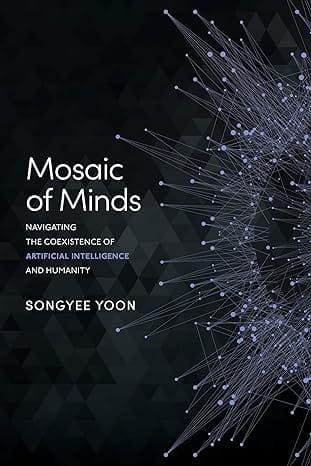
Mosaic of Minds: Navigating the Coexistence of Artificial Intelligence and Humanity
(Advantage Media Group, May 2024)
“I imagine a future society where we live together with highly intelligent AI. If we could determine our future, what would it look like? Would our deeply held values and ethics persist? What is the ideal future, and what will be the foundation for it? Even after spending considerable time developing cutting-edge AI in Silicon Valley, I still don’t have the answers to these questions. This book offers us a guiding light toward a more humane future amidst the uncertainty. As you turn the pages, you may encounter questions you’ve never considered before—questions we must ask if we want to navigate the ambiguity of our future. We are fortunate to encounter a book brimming with warm visions and profound insights into the future during these turbulent times. “
“’Love? What’s your price?’ This line from the drama series ‘Autumn in My Heart’ still lingers with me after twenty or so years. It feels strange and forced to try and convert love into money, a human value into something specific and quantifiable. Quantifying human values has long remained a challenging and complex task. However, with the advent of AI technology, this interesting yet perplexing topic has come to the forefront. While we still lack a consensus on what constitutes being human, we seek to quantify our humanity through AI. For instance, some students who condemned the unethical nature of Facebook had no ethical qualms when working on projects for social media companies that involved exploiting user profiles. As such, our ethical compass varies by context, so we must contemplate on how we can approach and unify our ethical views when building a humane future with AI technology. Through discussions with scholars of various fields, ‘Mosaic of Minds’ lays out the insights of those who have already thought of the above issues. Interestingly enough, despite their diverse backgrounds and fields of study, their thoughts and insights seem to align. This book is a map that can help us navigate through the complicated yet essential problem that needs to be solved.”
“Upon first seeing the title, I thought it could have been ‘New World and Ethics of New Technology,’ but it used ‘humane’ and ‘future” instead. Why? Perhaps the author envisioned a future where a person, enjoying the fruits of new technology (AI), or maybe a child in pain because of it, would be affected. If one realizes how something can impact the life of a child decades later, their attitude toward that technology can never be the same. Rules, dangers, dilemmas, and overcoming prejudice in a new world … An engineer who sought only the most optimal algorithm joins hands with a philosopher to draw out their map, thinking of the world they will leave behind. From then on, the engineer’s goal is not stock options, but an algorithm whose beginning may be forgotten, but could bring happiness closer to all. I want the readers of this book to envision the same: a post-apocalyptic world. There, on a desolate wasteland, walks a nomad who knows not what the new world’s fair principle is. They stumble upon a grand settlement in the middle of the desert, where a group of philosophers, sociologists, computer scientists, entrepreneurs, and politicians who understand both technology and philosophy research the ethics of the new world on equal grounds, welcoming them warmly. Imagine sitting at the end of their table with a warm meal, in the seemingly last bastion of mankind, engaging in discussion with them.”
“The recent advancements in AI are truly remarkable. As a professor teaching AI to students and as a researcher at the forefront of AI research and development, I take great pride and feel a sense of anticipation in these achievements. However, the rapid development and incredible results of AI also instill a sense of fear and responsibility in me. Amidst the glamour, this book encourages us to consider the impact AI will have on our society. As we enter an era that requires careful thought and action regarding AI ethics and social responsibilities, this book offers valuable insights and guidance. I wholeheartedly agree with the argument that discussions involving experts in humanities and sociology should take place during AI research and development to establish a common ethical foundation. The numerous efforts and initiatives by institutions like Stanford, Harvard, and MIT can serve as significant examples for us to learn from and build upon.”
“As AI becomes an integral part of our lives, the ethics surrounding AI have gained global attention. The EU announced their AI regulation bill in 2021, and the South Korean government unveiled their ethics guidelines, with companies like Naver, Kakao, and NCSOFT also announcing their own AI ethics regulations. I agree with the idea suggested in this book that the boundaries between fields of study must be dissolved to create AI that benefits humanity. As we approach a society where we interact with AI, its infrastructure must be built upon sociology, philosophy, and ethics, requiring ongoing discussions among developers, users, and governments, and a general consensus within our societies. This book proposes a new framework for humans and AI to coexist, which will become an intellectual resource for navigating the complexities and uncertainties of our era. Most importantly, it provides insights not only for businesspeople but also for those in education, humanities, sociology, government policy makers, and the younger generation who will shape the future.”
“’Life is already full of artificial intelligence.’ This statement is not an advertisement for an AI company; it reflects our current reality. We drive through routes guided by AI, purchase shirts recommended by AI, and listen to music selected by AI. AI can detect flaws and manage production lines in a canned fish factory. However, AI may still present a high mental barrier for some individuals. This uneasiness is likely to be temporary as we grow accustomed to AI. Our parents’ generation found English challenging, but we now use words like ‘momentum’ and ‘tier’ in our everyday conversations. AI-related knowledge will follow a similar path. Naturally, there are ways to adapt more quickly to the age of AI, and this book serves as an excellent guide. The book poses broad yet profound questions such as ‘what should universities teach to cultivate AI engineers with a strong ethical foundation?’ and ‘what would Descartes think of current AI if he could witness it?’ Most importantly, it helps us understand how AI, which originated from computer science, has merged with fields like economics, education, and government. I recommend this book to those who wish to see the bigger picture of change and overcome the information overload of AI news. It is particularly recommended for my fellow journalists, who are in great need of AI literacy.”
“AI, in its narrow sense, may refer to algorithms or software like AlphaGo, but from a broader perspective, it serves as the foundation of our future society. As a result, AI is being redefined based on each individual’s understanding and interpretation. This book acts as a guide to showcase various aspects of AI and facilitate comprehension. Since we expect AI to evolve by imitating our thinking abilities, it is considerably more challenging to predict the future it will bring compared to the changes introduced by steam engines, computers, or cars. While many movies and books depict dystopian futures revolving around AI, we cannot be entirely negative or optimistic about a future with AI. However, it is certain that we should approach AI with caution and aim for coexistence. Bearing this in mind, the title of this book, ‘Mosaic of Minds,’ represents the authors’ goal, and the book contains insights on questions we must address to achieve a human-centered AI. This is a must-read for everyone who will need to live through an uncertain future.”
“As someone pondering the direction of AI research in our country, the question I am most frequently asked concerns the impact of artificial intelligence on our future lifestyle. This includes its effects on jobs, potential AI errors, malicious intentions of developers, and so on. The increasing concerns surrounding these issues underscore the growing need for AI regulations. When faced with these questions, I used to argue against the immediate need for control over AI technology development and suggested that discussions could take place over time. However, as I read through this book, I began to realize that there are many actions we can take right now. We can educate developers about their influence and potential biases during the planning and development of AI technology, instead of addressing problems after completion. Furthermore, we can engage in discussions with experts in ethics and philosophy, even though these topics may be difficult for developers to understand. This book explores our future coexistence with AI through conversations with experts from various fields, making it inspiring not only for those familiar with AI but also for those who study human lives and thoughts. Moreover, it provides an opportunity to engage in constructive discussions on the role of AI in shaping our humane future.”
